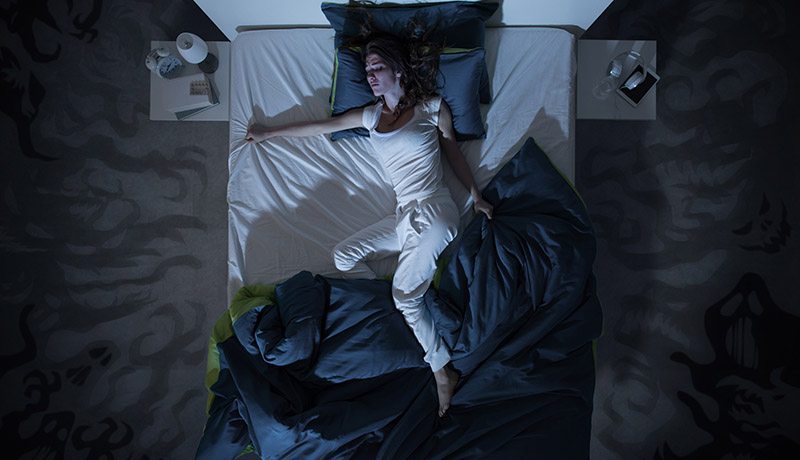Night Sweats
Symptoms in Detail
Menopausal night sweats
When you have a hot flush at night.

What are menopausal night sweats?
A night sweat during menopause means you are having a hot flush while you are asleep in bed.
The body experiences a quick onset of body heat followed by sweating. As a result you can wake up drenched and chilly, sometimes with a speeding heart and sense of anxiety. It is then difficult to get back to sleep.
What causes night sweats?
During menopause estrogen levels fluctuate, causing a part of the brain that regulates body temperature to become confused. Like a faulty thermostat it responds to these fluctuations as if it is sensing an increase in body temperature.
In an attempt to cool you down it sparks your blood vessels to dilate, creating the hot flush, then triggering sweat glands to produce sudden perspiration.
When this happens while you are asleep it is called a night sweat and will wake you and lead to broken sleep.
Know the 34 symptoms of menopause
Here are all of the documented symptoms of menopause you need to look out for:
Physical Symptoms
- Incontinence
- Changes in Body Odour
- Bouts of Rapid Heart Beat
- Breast Pain
- Headaches
- Joint Pain
- Itchy Skin
- Burning Mouth Syndrome
- Electric Shock Sensation
- Digestive Problems
- Gum Problems
- Increased Tension in Muscles
- Formication - Crawly Skin
- Paresthesia - Numbness in Hands and Feet
- Osteoporosis - After Several Years






